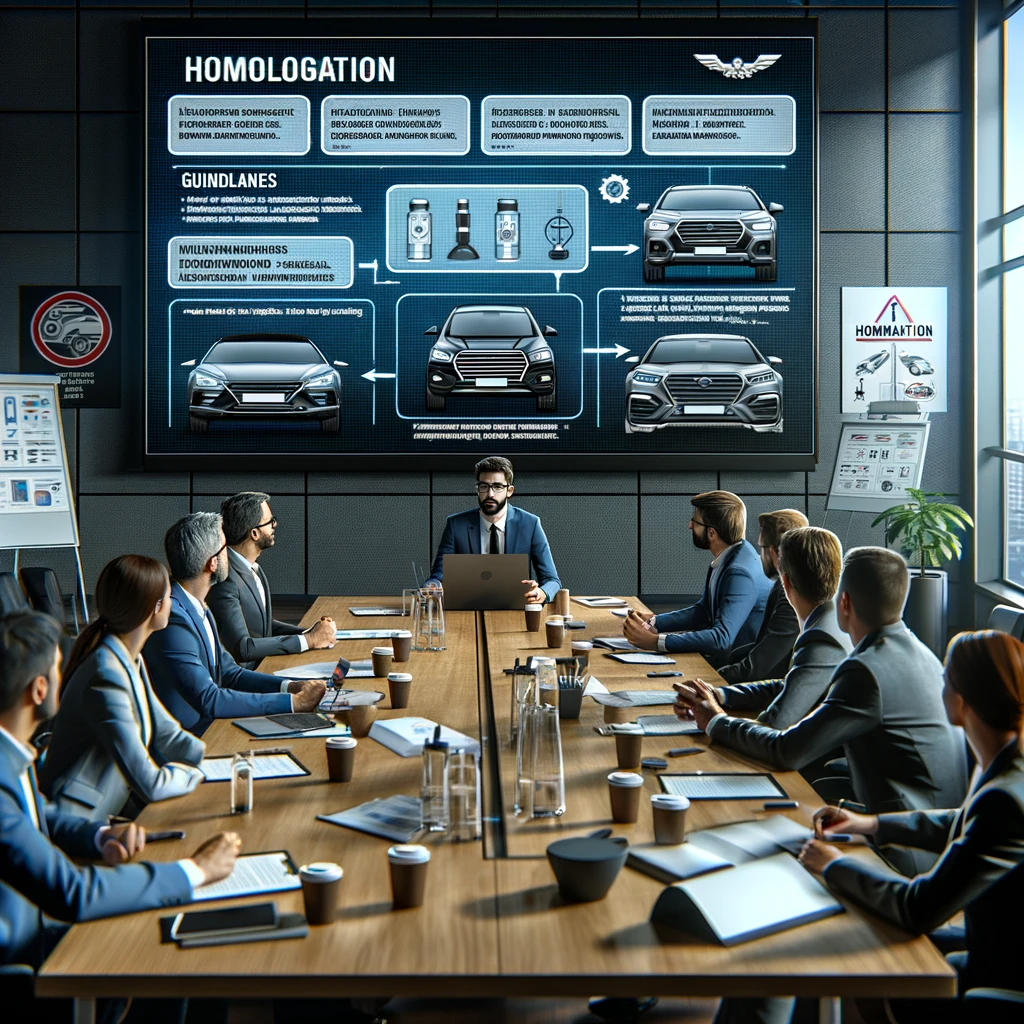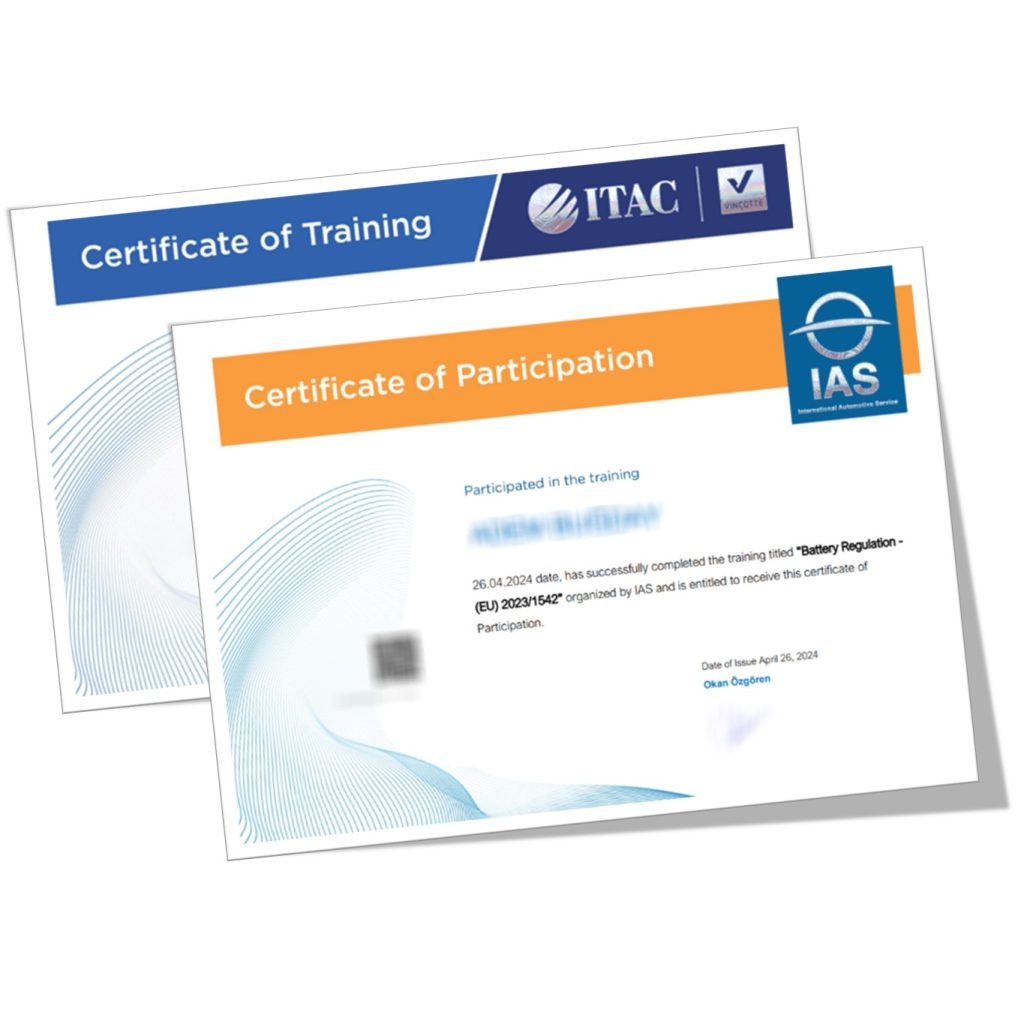Homologation Training
As IAS the pioneer company in the automotive sector, we are providing lot of services like training and awareness in all scopes.


Key Components of ECE Homologation:
Understanding Homologation
Homologation is derived from the Greek word ‘homologeo,’ meaning to agree or to acknowledge. In the context of the automotive industry, it refers to the process of certifying that a vehicle or a vehicle component complies with the technical standards and regulations set by the governing body of a specific region or country. These regulations are designed to ensure that vehicles are safe for public use, environmentally friendly, and perform as expected.
- Technical Specifications: ECE regulations provide detailed technical specifications for various vehicle components such as lighting, brakes, tires, and emissions. Each component must meet these specifications to obtain ECE certification.
- Testing Procedures: Vehicles and their components undergo rigorous testing procedures to ensure compliance with ECE standards. These tests are conducted by accredited laboratories and cover aspects like crashworthiness, emissions, and noise levels.
- Certification and Marking: Once a vehicle or component passes the required tests, it receives an ECE certification. Certified products are marked with an ECE approval mark, indicating compliance with the relevant regulations.
- Type Approval: ECE regulations follow a type approval system, meaning that once a specific vehicle model or component is approved, it can be produced and sold without the need for additional testing for each unit.
EU Homologation Regulations
The European Union (EU) has its own set of regulations for vehicle homologation, aimed at ensuring a high level of safety and environmental protection across member states. The EU regulations are primarily outlined in the EU Whole Vehicle Type-Approval (WVTA) system.
- Framework Directive: The EU homologation process is governed by the Framework Directive (Directive 2018/858/EC), which establishes the legal framework for the approval of motor vehicles and their components. It ensures harmonized standards across the EU.
- Type-Approval Certificates: Similar to ECE regulations, the EU uses a type-approval system. Manufacturers must obtain type-approval certificates for their vehicles and components, demonstrating compliance with EU standards.
- Conformity of Production: Manufacturers must ensure that the production process consistently produces vehicles and components that conform to the approved type. This involves regular inspections and audits by regulatory authorities.
- Environmental Standards: The EU homologation process places significant emphasis on environmental protection. Vehicles must meet stringent emission standards, including CO2 emissions and other pollutants. The latest standards are outlined in the Euro 6/VI regulations.
- Safety Standards: The EU regulations encompass a wide range of safety standards, including crash tests, electronic stability control, and pedestrian protection. These standards are regularly updated to incorporate the latest technological advancements.
Homologation Training: Essential Knowledge
Training in homologation is essential for professionals in the automotive industry to navigate the complex regulatory landscape effectively. Homologation training covers various aspects, including:
- Regulatory Frameworks: Understanding the differences and similarities between ECE and EU regulations.
- Technical Requirements: Detailed knowledge of the technical specifications and testing procedures for different vehicle components.
- Certification Process: Step-by-step guidance on obtaining type-approval certificates and ECE approval marks.
- Compliance Management: Strategies for ensuring conformity of production and maintaining compliance with regulatory standards.
Questions? You’re Covered
We are dedicated to providing you with a personalized training plan.
Homologation Training is a type of education focused on ensuring that vehicles and components meet specific legal and technical standards in the automotive industry.
This training is suitable for automotive engineers, designers, quality control specialists, and other professionals involved in the homologation process.
The training typically covers international homologation standards, testing and certification processes, technical documentation, and compliance requirements.
The training equips participants with the skills to ensure vehicles and components meet legal requirements, reduces production errors, and enhances market access.

